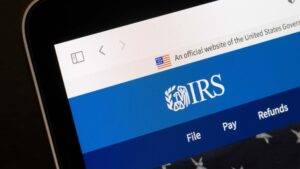
- |
- TaxByte
Notice 2026-05 provides critical guidance on the OBBBA's HSA expansions, including eligibility requirements for bronze
4 min read
SHOP THE WINTER SALE – Get deals across the digital catalog, conferences, credit packages, and more.
Move over, ERC: there’s another social media craze gaining steam. The IRS has issued an alert regarding misleading information on social media telling people they can cash in on the “Self Employment Tax Credit” (sometimes abbreviated as “the SETC”) as a way for self-employed individuals and gig workers to qualify for payments of up to $32,000 (with some sources claiming as high as $36,200) related to the COVID-19 pandemic period.
The actual credit being referred to is the Credits for Sick Leave and Family Leave, and while it is certainly real, there are important details some social media influencers are not mentioning. The credit can’t be claimed for tax years after 2021, for one. Additionally, approximately half of the available credit for 2020 is no longer available, as it expired on April 15, 2024. Finally, there are stringent technical requirements to qualify for the credit that go beyond simply being self-employed.
The IRS reports it’s seeing an influx of taxpayers incorrectly using Form 7202, Credits for Sick Leave and Family Leave for Certain Self-Employed Individuals to attempt to claim the credit for years it doesn’t exist, as well as when the taxpayer doesn’t meet eligibility requirements. The IRS warns it’s scrutinizing these claims carefully.
To qualify for Sick and Family Leave Credits, workers need to have met a range of technical requirements in 2020 and 2021 that prevented them from working. Because of the 3-year statute of limitations on amendments, taxpayers can’t amend their 2020 returns at this point—only 2021. Tax preparers should refer to the IRS FAQs on Sick and Family Leave Credits for more specific information on the requirements to qualify for this credit.
“These improper claims have been fueled by social media and people sharing bad advice,” said IRS Commissioner Danny Werfel. “Scam artists constantly prey on people’s hopes and try to use the complexity of the tax system to convince people there are secret ways to get a big refund. All of these scams illustrate that it’s important to carefully review the tax return for accuracy before filing and rely on the advice of a trusted tax professional, not someone trying to make a quick buck or a questionable source on social media.”
Joshua Jenson, CPA also known as JJ the CPA —himself a popular social media influencer — offers additional context: “While I don’t doubt the IRS Commissioner’s statements, taxpayers should know that if they hire a qualified tax adviser and determine they do in fact qualify for 2021, they should not be concerned about filing an amended return. While the IRS will scrutinize these filings, the IRS is also very good at ensuring taxpayers who qualify for any deduction or credit will in fact get it.”






Subscribe to our news, analysis, and updates to receive 10% off your first purchase of an on-demand digital CPE course.